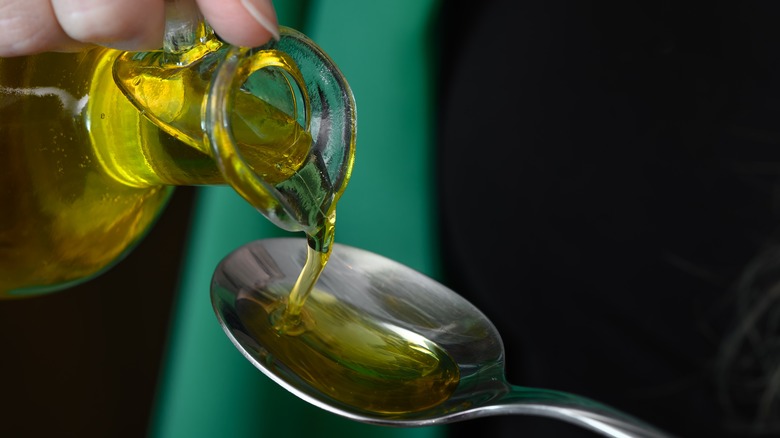Some people prefer to turn to homeopathic remedies first rather than rely upon pharmaceuticals to address their health concerns. However, natural products sometimes end up being more hype than help. That’s why it’s important to investigate such claims.
In recent times, black seed oil has gained a reputation for being able to simultaneously lower cholesterol and blood pressure levels. Black seed oil comes from the dark seeds of a shrub known as Nigella sativa (aka black cumin) that’s native to parts of Asia, Africa, and Europe. Once the oil is isolated from the seeds, it can be used medicinally as a topical agent or ingested product.
One of the most active ingredients in black seed oil, thymoquinone, is reported to help improve cardiovascular responses when it’s consumed. Specifically, thymoquinone is said to have both antioxidant and anti-inflammatory properties, according to the National Center for Biotechnology Information. It is these purported properties that theoretically give thymoquinone-based black seed oil its ability to tame hypertension and decrease high cholesterol.
But does black seed oil live up to its promise? Investors seem to think so, if a Spherical Insights press release is any indication. The black seed oil global market is expected to increase in size to more than double — $41.56 billion — between 2023 and 2033. Moreover, some research appears to be pointing in the direction of the oil as a possible adjacent cardiovascular therapy. But not all experts agree that black seed oil is definitely helpful.
Studies point to black seed oil’s possibilities
Authors of a 2021 review in Nutrients noted that there is increasing evidence of black seed oil’s therapeutic and cardioprotective potential. A 2022 clinical trial in Toxicology Reports seems to support this. During the trial, participants ingested either black seed oil or a placebo for 90 days. Those who took the black seed oil saw a significant drop in their cholesterol levels. Another 2021 trial, published in Phytotherapy Research, explored the ingestion of black seed oil and sunflower seed oil on individuals who had been diagnosed with hypertension. At the end of eight weeks, the average blood pressure and cholesterol numbers of participants had declined, along with an increase in high-density lipoprotein (HDL), or “good” cholesterol.
Black seed oil appears to be a potentially reasonable therapeutic treatment for people who are struggling to keep their blood pressure and cholesterol levels within normal ranges. However, registered dietitian Angel Luk states that more studies are needed before we can reasonably confirm black seed oil’s perceived health benefits. “Unfortunately, there isn’t enough research conducted at this point that helps to explain exactly how and why black seed oil may be beneficial for health,” she explains. “While there are some small studies conducted that show improvements to cholesterol and blood pressure, the results are not yet generalizable to the public, whereby recommendations of specific doses to consume can actually be made.”
Exercising caution with black seed oil
Angel Luk isn’t against people trying black seed oil, especially those who want to test it out as an occasional food ingredient. However, she warns that some people have reported bloating and a burning sensation after eating black seed oil.
“Black seed oil may be used to cook with,” the nutritionist states, adding that it probably isn’t a good idea to look to it for everyday cooking. “The flavor profile of black seed oil is slightly bitter and spicy, which may be better reserved for recipes with other strong flavors. For everyday cooking purposes, a more neutral-flavored oil will likely allow other ingredients’ flavors to shine through, and there’s less risk in accidentally causing unwanted digestive issues for everyone around the dining table.”
In other words, speak with a healthcare professional before making black seed oil a regular part of your diet, and consider the needs and preferences of the people who will consume what you cook before using black seed oil as an ingredient.


